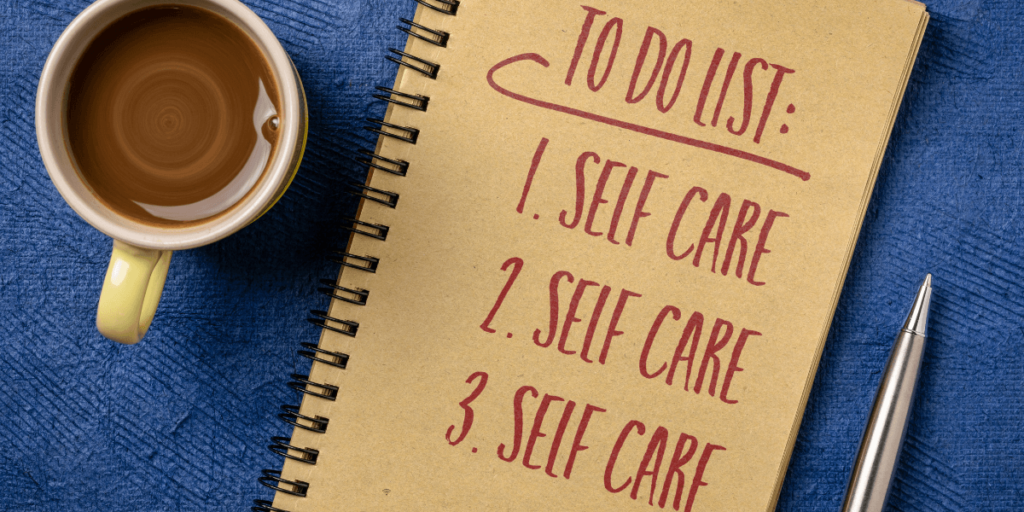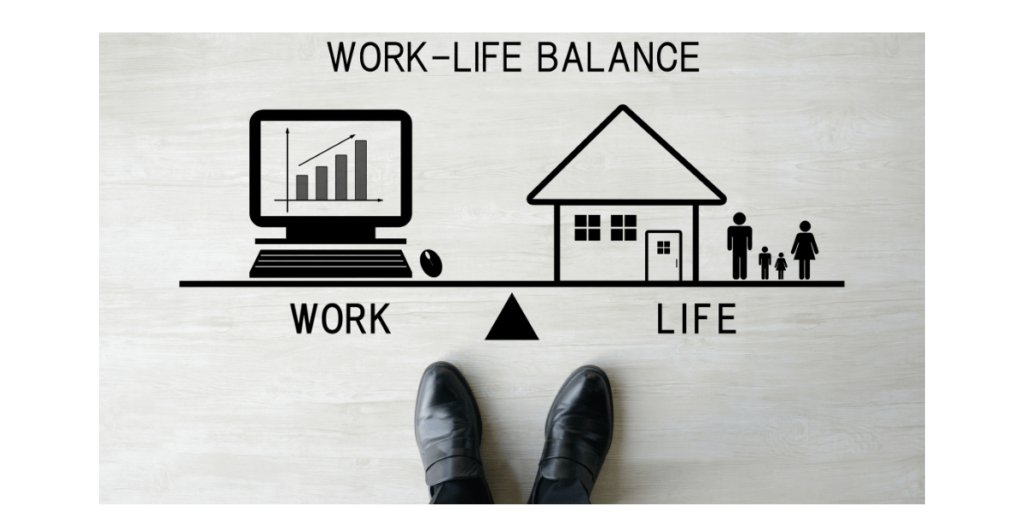In today’s fast-paced world, it is increasingly common to feel overwhelmed. Anxiety and stress are almost accepted as part of modern life. However, this shouldn’t be the case. Engaging in deliberate and focused self-care practices can not only combat anxiety but also lift your spirits, boosting your emotional health and mental resilience. Self-care is not just about pampering yourself sporadically; it’s about consistently nurturing your mind, body, and soul to build a reservoir of strength and positivity that you can draw upon in challenging times.
The link between self-care and mental resilience is well-documented. Mental health experts agree that individuals who regularly participate in self-care activities are more likely to possess greater emotional strength, enabling them to handle life’s obstacles more effectively. This strength stems from creating a balanced routine that prioritizes your well-being, thereby cultivating resilience.
Additionally, self-care practices help reduce stress hormones, promote feelings of calm and happiness, and elevate overall mood stability. By integrating various self-care strategies into your daily routine, you can transform your life. This article will explore several avenues to achieve this transformation, including mindful routines, hydrotherapy techniques, yoga, balanced nutrition, and much more.
Let’s delve into actionable and effective self-care practices that can help you combat anxiety and lift your spirits, setting you on the path toward enhanced emotional health and mental resilience.
The Connection Between Self-Care and Mental Resilience
Self-care plays a crucial role in building mental resilience, the ability to bounce back after experiencing stress or adversity. By consistently practicing self-care, one creates a foundation of emotional and mental well-being to draw upon in tougher times. This is not a one-time fix but rather a lifestyle choice geared towards long-term mental health.
Practicing self-care helps to reduce stress hormones such as cortisol, allowing you to enter a more relaxed state. When your body is not continuously battling the effects of stress, it can focus more energy on growth, healing, and functioning optimally. Emotional resilience is built over time, through regular actions such as exercise, meditation, or simply taking a quiet moment to breathe.
Moreover, self-care activities like journaling, art, or gardening help anchor you in the present moment, providing a grounded sense of stability. This stability imparts a sense of control and preparedness, qualities that are essential for mental resilience. In summary, the consistent effort placed into self-care activities serves to fortify your mental defenses, which is indispensable for surviving and thriving in a world riddled with stressors.
Adopting a Mindful Morning Routine
Starting your day with a mindful morning routine can set a positive tone for the rest of the day. Mornings present a unique opportunity to engage in activities that ground you, providing a sense of calm and centeredness before the day’s hustle begins. Mindfulness involves being present and fully engaged in whatever you’re doing at the moment, free from distraction or judgment.
- Meditation and Breathing Exercises: Begin your day with a short meditation session. Even five minutes of focused breathing can have a profound impact. Sit in a comfortable position, close your eyes, and take deep breaths, inhaling positivity and exhaling stress.
- Gratitude Journaling: Write down three things you’re grateful for every morning. Focusing on gratitude diverts your attention away from anxiety-inducing thoughts and redirects it toward positive aspects of your life.
- Physical Activity: Incorporating light exercise such as yoga or a brisk walk can invigorate your body and stimulate the release of endorphins, the body’s natural mood lifters.
Mindful Morning Routine Activities:
| Activity | Time Duration | Benefits |
|---|---|---|
| Meditation | 5-10 minutes | Calms mind, reduces stress |
| Gratitude Journaling | 5 minutes | Enhances positive thinking |
| Light Exercise | 15-30 minutes | Boosts mood, increases energy levels |
By cultivating a mindful morning routine, the beneficial effects are likely to ripple through the rest of your day, preparing you to face challenges with increased calmness and mental clarity.
Hydrotherapy Techniques for Stress Reduction
Hydrotherapy, or water therapy, has been hailed for its therapeutic benefits for centuries. It involves the use of water to relieve pain and treat various conditions including anxiety and stress. The sensation of water on your skin, whether it is hot, cold, or in the form of steam, has a profound effect on your emotions and overall well-being.
Types of Hydrotherapy:
- Warm Baths: Immersing yourself in a warm bath can be exceptionally relaxing. Adding essential oils like lavender or chamomile can amplify the calming effects, helping to reduce muscle tension and soothe your mind.
- Cold Showers: While it may sound counterintuitive, taking a cold shower has been shown to have significant stress-relieving benefits. Cold water can help reduce inflammation, bolster immune function, and even improve mood by triggering the release of endorphins.
- Steam Rooms or Saunas: Spending time in a steam room or sauna can enhance circulation and detoxify your body by inducing sweating, further promoting relaxation and mental clarity.
Hydrotherapy Techniques Summary:
| Hydrotherapy Technique | Duration | Key Benefits |
|---|---|---|
| Warm Bath | 15-30 minutes | Relieves muscle tension, soothes mind |
| Cold Shower | 5-10 minutes | Reduces inflammation, boosts mood |
| Steam Room/Sauna | 10-20 minutes | Enhances circulation, detoxifies |
Hydrotherapy can easily be incorporated into your daily or weekly routine, offering a simple yet effective way to reduce stress and increase overall emotional well-being.
Exploring Yoga for Holistic Healing
Yoga is more than just a physical exercise; it’s a holistic practice that encompasses body, mind, and spirit. The amalgamation of postures, breathing exercises, and meditation not only strengthen your body but also significantly reduce anxiety and lift your spirits.
Benefits of Yoga:
- Physical Benefits: Through various postures (asanas), yoga improves flexibility, strength, and balance. The physical exertion releases endorphins which act as natural painkillers and mood enhancers.
- Mental Benefits: The mindfulness component of yoga, requiring focus on breath and movement, helps in quieting the mind. This mental focus reduces the symptoms of anxiety and promotes a balanced mental state.
- Spiritual Benefits: Yoga often includes a spiritual dimension, which involves practices like chanting or meditative prayer, helping individuals feel more connected and grounded.
Common Yoga Asanas:
| Asana | Description | Benefits |
|---|---|---|
| Child’s Pose | Kneeling with forehead on the ground | Reduces stress, promotes calm |
| Downward Dog | Inverted V-shape stretching pose | Improves circulation, energizes body |
| Warrior Pose | Lunges with arms lifted overhead | Boosts confidence, enhances focus |
By integrating yoga into your life, you can achieve a state of holistic healing, balancing physical exertion with mental relaxation and spiritual grounding.
The Role of Balanced Nutrition
A balanced diet is vital for maintaining emotional health and mental resilience. What you consume has a profound impact on how you feel, think, and perform daily. Nutrients from wholesome foods fuel your brain and improve your mood, thereby reducing anxiety and lifting your spirits.
Key Nutrients for Mental Health:
- Omega-3 Fatty Acids: Found in fish like salmon and walnuts, Omega-3s support brain function and can alleviate symptoms of depression and anxiety.
- Antioxidants: Found in berries, green tea, and dark chocolate, antioxidants reduce oxidative stress, which is linked to mental health challenges.
- B Vitamins: Foods like eggs, dairy, and leafy greens are rich in B vitamins, which are essential for energy production and effective brain function.
Sample Balanced Diet Plan:
| Meal | Food Items | Nutritional Benefits |
|---|---|---|
| Breakfast | Oatmeal with berries | High in antioxidants, fiber-rich |
| Lunch | Grilled chicken salad with avocado | Protein, healthy fats, vitamins |
| Dinner | Baked salmon with quinoa and greens | Omega-3, complete protein, vitamins |
| Snack | Greek yogurt with honey | Probiotics, energy-boosting sugars |
By focusing on balanced nutrition, you can ensure that your brain and body get the nutrients they need to function at their best, contributing to enhanced emotional health and mental resilience.
Visualizing Success and Calmness
Visualization is a powerful tool that creates a mental imagery of success and calmness. By visualizing positive outcomes and tranquil scenarios, you can effectively manifest a more balanced emotional state and reduce anxiety.
Steps for Effective Visualization:
- Set Clear Goals: Have a clear idea of what you want to achieve or feel. This could be as simple as wanting a calm mind or achieving a specific career goal.
- Create a Mental Image: Close your eyes and vividly imagine yourself achieving these goals or being in a peaceful place. Involve all your senses to make the image as real as possible.
- Regular Practice: Make visualization a regular part of your routine, perhaps incorporating it into your morning or bedtime rituals.
Visualization Exercise Example:
| Step | Description |
|---|---|
| Goal Setting | Decide on a goal like “feeling relaxed” |
| Mental Image | Imagine yourself in a peaceful forest |
| Sensory Input | Feel the texture of leaves, the sound of birds |
Visualization can serve as a mental rehearsal that enhances your confidence, calms your nerves, and lifts your spirits by aligning your thoughts with positive outcomes.
Engaging in Creative Activities
Creative activities offer a fantastic avenue for emotional release and mental relaxation. Whether it’s painting, writing, or playing music, engaging in creativity allows you to express your emotions in a healthy manner, mitigating feelings of anxiety and uplifting your spirits.
Benefits of Creative Expression:
- Emotional Release: Expressing yourself creatively allows for an emotional catharsis, helping to release pent-up feelings like stress or anxiety.
- Mental Focus: Activities such as painting or crafting require concentration, which can help distract you from anxious thoughts, thereby providing a mental break.
- Sense of Accomplishment: Completing a creative project can give you a sense of achievement, boosting your self-esteem and mood.
Creative Activities Examples:
| Activity | Materials Needed | Benefits |
|---|---|---|
| Painting | Canvas, paint, brushes | Emotional release, mental focus |
| Writing | Journal, pen | Emotional expression, self-reflection |
| Music | Instrument or audio software | Stress relief, increases happiness |
By making time for creative pursuits, you not only combat anxiety but also enrich your emotional health and mental resilience, creating a more fulfilled and balanced life.
Connecting with Loved Ones
Human connections are essential for emotional well-being. Spending quality time with loved ones can dramatically reduce anxiety levels and lift your spirits. The social support system acts as a buffer against stress, helping you to feel more secure and less isolated.
Ways to Strengthen Connections:
- Regular Communication: Stay in touch with family and friends through calls, texts, or social media. Regular interaction keeps relationships strong and offers a sense of belonging.
- Shared Activities: Engage in activities you enjoy together, such as cooking, watching movies, or hiking. Shared experiences strengthen bonds and provide mutual emotional support.
- Honest Conversations: Being open about your emotional state can provide a sense of relief. Loved ones can offer perspective, advice, or simply a listening ear.
Interaction Techniques:
| Technique | Example Activities | Benefits |
|---|---|---|
| Regular Communication | Weekly video calls, group chats | Keeps relationships active, offers support |
| Shared Activities | Game nights, book clubs | Strengthens bonds, fosters shared memories |
| Honest Conversations | Heart-to-heart talks, therapy sessions | Emotional relief, clarity of thought |
Investing time in nurturing relationships not only provides emotional relief but also significantly contributes to building mental resilience and a happier life.
Scheduling Regular ‘Me Time’
Setting aside time just for yourself, often referred to as ‘me time,’ is crucial for mental well-being. Whether you spend this time reading, meditating, or simply lounging, having moments dedicated to yourself can help combat anxiety and elevate your spirits.
Why ‘Me Time’ Matters:
- Self-Reflection: Quiet moments allow for self-reflection, helping you to better understand your emotions and thoughts, thereby fostering emotional health.
- Recharging: Regular downtime can help you recharge, making you more effective in your personal and professional life.
- Stress Reduction: Allocating time for activities you enjoy can reduce stress levels and increase happiness.
‘Me Time’ Ideas:
| Activity | Duration | Benefits |
|---|---|---|
| Reading | 30-60 minutes | Improves focus, provides mental escape |
| Meditation | 10-20 minutes | Reduces stress, enhances mindfulness |
| Lounging | 20-30 minutes | Offers relaxation, mental break |
By making ‘me time’ a non-negotiable part of your schedule, you allow yourself the opportunity to recharge and maintain a balanced emotional state.
Mindful Breathing Techniques
Breathing techniques are among the simplest yet most powerful tools for stress reduction and emotional regulation. Deliberate, mindful breathing can help calm your mind, reduce anxiety, and elevate your mood.
Key Breathing Techniques:
- Deep Breathing: Take slow, deep breaths, inhaling through your nose and exhaling through your mouth. This technique helps to slow down your heart rate and induce a state of calm.
- Box Breathing: Inhale for four counts, hold for four counts, exhale for four counts, and hold again for four counts. This balanced breathing pattern helps to focus your mind and reduce stress.
- Alternate Nostril Breathing: Close one nostril and inhale, then switch and exhale through the other nostril. Alternate nostril breathing can help balance your body’s energy levels.
Breathing Techniques Summary:
| Technique | Steps | Benefits |
|---|---|---|
| Deep Breathing | Inhale slowly, hold, exhale slowly | Calms mind, reduces stress |
| Box Breathing | Inhale-hold-exhale-hold (4 counts) | Balances breathing, focuses mind |
| Alternate Nostril | Inhale one nostril, exhale other | Balances energy, relaxes body |
Incorporating these mindful breathing techniques into your routine can provide an immediate reduction in anxiety, helping you maintain equilibrium and boost overall emotional health.
The Role of Physical Movement
Physical movement is integral to managing anxiety and enhancing mental well-being. Regular exercise releases endorphins, the natural mood lifters, and provides an effective outlet for stress and anxiety.
Types of Beneficial Physical Activities:
- Cardio Exercises: Activities like running, cycling, or swimming can help elevate your heart rate, improving cardiovascular health and releasing endorphins that boost your mood.
- Strength Training: Lifting weights or engaging in bodyweight exercises can provide a robust sense of accomplishment and increase self-esteem.
- Flexibility Exercises: Stretching or engaging in practices like yoga increases flexibility, reduces muscle tension, and promotes relaxation.
Physical Activity Options:
| Activity | Duration | Benefits |
|---|---|---|
| Running | 30-45 minutes | Improves cardiovascular health, mood |
| Weight Lifting | 20-30 minutes | Increases strength, boosts confidence |
| Stretching | 10-15 minutes | Reduces tension, enhances flexibility |
Regular physical movement should be viewed as a cornerstone of any self-care routine, offering a myriad of benefits for both your body and mind.
Conclusion
Self-care is not a luxury but a necessity for maintaining emotional health and mental resilience. By adopting practices such as mindful morning routines, hydrotherapy, yoga, balanced nutrition, and more, you can significantly reduce anxiety and lift your spirits. Each of these strategies offers unique benefits and can be integrated into your daily life to help you build a stronger, more resilient self.
Incorporating self-care practices requires a commitment to putting your well-being first. It is a continuous journey of self-discovery and improvement. The investment in self-care pays off through improved mental and emotional health, empowering you to handle life’s stresses with greater ease and confidence.
In essence, self-care practices serve as your personal toolkit for combating anxiety and uplifting your spirits. By dedicating time and effort towards these activities, you can create a stable and positive mental framework that supports a healthier, happier life.
Recap:
- Self-Care and Mental Resilience: Strengthens emotional defenses, reduces stress hormones, offers mental stability.
- Mindful Morning Routine: Begins the day with meditation, gratitude journaling, and light exercise.
- Hydrotherapy: Utilizes warm baths, cold showers, and steam rooms for stress relief.
- Yoga for Holistic Healing: Improves physical health, mental focus, and spiritual grounding through asanas and meditation.
- Balanced Nutrition: Essential nutrients like Omega-3s, antioxidants, and B vitamins support brain function and mood.
- Visualization: Uses mental imagery for achieving calmness and positive outcomes.
- Creative Activities: Offers emotional release and mental focus through creative expression.
- Connecting with Loved Ones: Strengthens emotional bonds and provides social support.
- ‘Me Time’: Incorporates personal downtime for relaxation and mental recharging.
- Mindful Breathing: Techniques like deep breathing and box breathing to reduce stress.
- Physical Movement: Cardio, strength training, and flexibility exercises for overall mood enhancement.
FAQ:
- What are some easy self-care practices for beginners?
- Beginners can start with simple activities like mindful breathing, gratitude journaling, and light exercise.
- How does self-care improve mental resilience?
- Self-care reduces stress hormones, increases positive emotions, and provides a mental break from daily stressors, thereby building mental strength.
- Can a mindful morning routine really make a difference?
- Yes, starting your day with mindfulness sets a positive tone, reduces stress, and improves overall mood.
- How often should I use hydrotherapy techniques?
- Incorporate hydrotherapy into your weekly routine, adjusting frequency based on your comfort and schedule.
- What are the benefits of yoga beyond physical fitness?
- Yoga improves mental focus, reduces anxiety, and promotes spiritual grounding.
- Why is balanced nutrition important for emotional health?
- Nutrients like Omega-3s and antioxidants support brain health and mood regulation, reducing symptoms of anxiety.
- How can creative activities help with anxiety?
- Creative pursuits allow for emotional expression and mental distraction, providing a healthy outlet for stress.
- What if I don’t have time for daily physical movement?
- Even short bursts of activity, like a 10-minute walk, can have a positive impact on your mood and stress levels.
References:
- Johns Hopkins Medicine. “The Science of Gratitude,” 2021. https://www.hopkinsmedicine.org/health/wellness-and-prevention/the-science-of-gratitude



